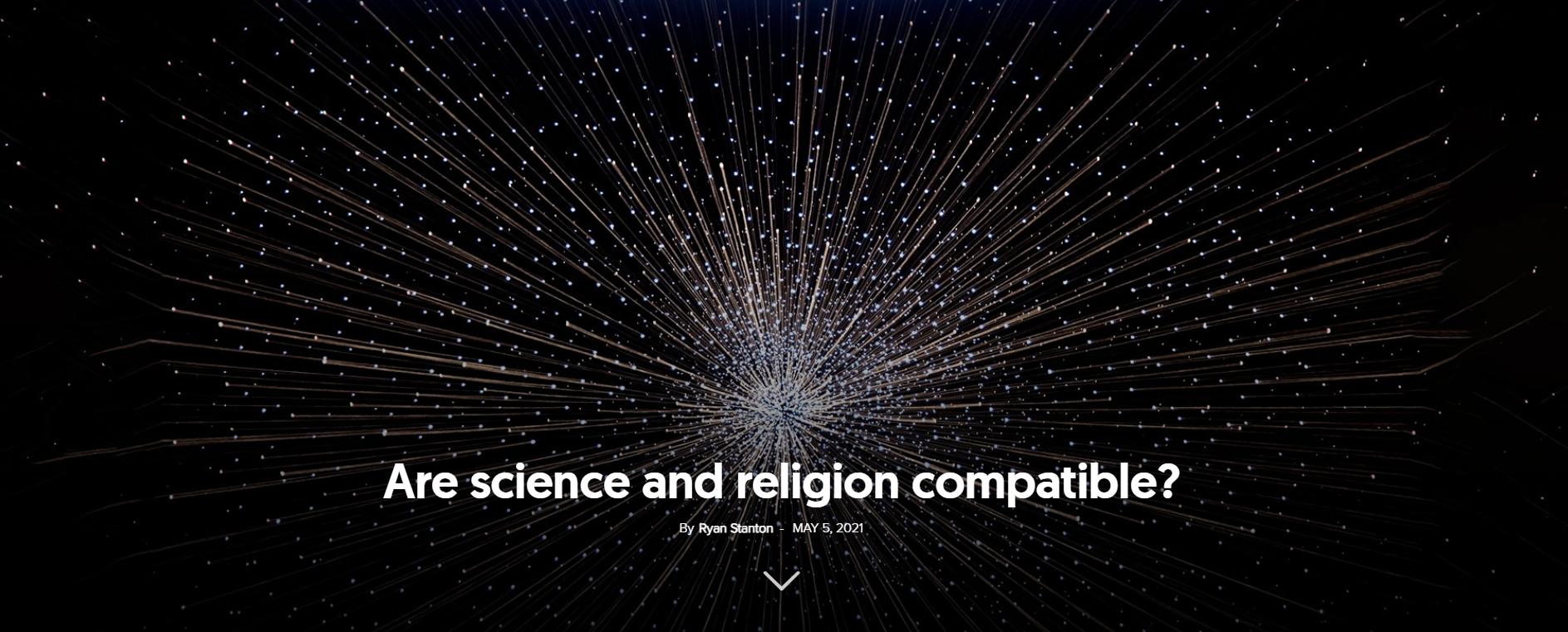The field of science was flourishing, and amid its youngest and brightest, one student in particular consistently topped physics and chemistry courses, took its academic prizes and was courted with offers of scholarships by prestigious universities. His trajectory was toward the heights of the scientific world.
In our age of enlightenment and postmodern reasoning, scientist Dr John Ashton’s journey stands as an exception, demonstrating the fact that studying science doesn’t always destroy one’s faith. Sometimes it creates it.
Finding faith
During his university years, Ashton worked in the research division of the world’s pre-eminent mining and petroleum company, BHP Billiton.
“I was struck by the emptiness in the lives of some of the scientists there,” he says. “My boss stood out, though. There was something different about his approach to work and to life.”
The difference was that his boss was a Christian.
“So I started thinking about my purpose in life,” Ashton recalls. “Having grown up in a nominally Christian home, I asked my mother, ‘How do you learn about God?’ She suggested I start by going to church.”
And so he did. Yet, Ashton didn’t even own a Bible of his own.
“At the time I was applying for the most prestigious chemistry scholarship in the country and so it was that I prayed my first prayer. I basically said, ‘God, if I win this scholarship, I’ll buy a Bible.’”
He won it, which got him working under world-renowned chemist Harry Bloom. The first book he bought on arrival? A Bible.
Fighting to be heard
Over the years, Ashton has accumulated two doctorates, the first in chemistry and the second in epistemology (the theory of knowledge). He’s also written countless papers, contributed significant findings to the scientific community and penned multiple books. His most recent book is Evolution Impossible. Nevertheless, despite all the accolades and accomplishments, being heard as a creationist among the growing chorus of evolutionary evangelists is to be in the midst of a constant battle.
Ashton says that while most of the scientists he works with are quite civil about their differences, agreeing to disagree, behind the closed doors of research centres and publishers—metaphorically and literally—things are different.
“I had a book about to be released and was working on advertising with one of the largest and globally most popular science magazines,” he says. “I told them about the book and its scientific support of creation, and suddenly they became disinterested. In spite of the fact that I had the money to pay for it, they simply weren’t interested in giving it space in their journal.”
Similar walls have been erected against Ashton’s applications for research grants at various institutions. He says that the science is sound, but nobody wants to touch it.
In 2006, Ashton prepared a DVD giving evidence for intelligent design, but backlash from the scientific community was scathing and most unscientific. He says “one journal article lumped the idea in with nonsense like ‘spoon-herding and alien abduction,’” which, ironically, he points out, is hardly a scientific argument.
“A year later, a response article I wrote was published. The feedback was even more stinging.”
Ashton has received countless aggressive, and at times derogatory, emails and comments. “Among them,” he says, “the most telling comment came from a fellow scientist who said, ‘We haven’t discovered the evidence that you’re wrong yet. But we will discover it.’” It was a comment that confirms his greatest worry about his work and his faith.
“I fear there is no debate left in this [creation versus evolution] issue,” he says. “It hasn’t been lost on evidence but on what people want to believe.”
Lessons to be learned
“There is no evidence anywhere in the scientific world that demonstrates the creation of new genetic information,” Ashton says. “Small pieces of genetic code have been transferred or removed, but nothing is new. Without these new pieces of information, there are no scientific answers for creation’s arguments.”
Another of the most confounding issues for an evolutionary explanation of life is that of synergy—the interaction of two or more elements that, when combined, produce an effect that is greater than any one of them can produce alone. Ashton believes that this concept lies at the root of “a lot of mistakes, particularly in environmental and health sciences.” He explains it’s a little bit like two men being able to carry more than twice the load that either of them could carry alone.
“Nature seems to be able to create synergies within systems that defy simple logic,” Ashton says. “This causes significant issues for scientific research.”
Beyond his scientific discoveries, Ashton has found two significant issues that pose challenges to those presenting a case for creation. “First, there is a profound lack of knowledge about the Bible in the scientific community,” he says. “Many scientists operate and make judgements on assumptions that are completely wrong.”
Another is the pervading notion that all scientists believe in evolution. “It’s pretty safe to say that there are many leading scientists across multiple fields who prove this is wrong. But the attitude is again evidence that the debate has been taken off the table.”
Ashton admits that it would be a lot easier if he just gave up the fight. But if he’s learned anything as a scientist and as a Christian, it’s that truth must be brought to light.
“There are a lot of theories and a lot of conjecture about a lot of things. What I’m interested in is what we can know and what we can reproduce.
“We have to ask ourselves, ‘What is the best historical evidence? What is the best scientific knowledge? What is the best biblical knowledge?’ And then we have to use it.”
Braden Blyde is a freelance writer based in Adelaide, South Australia. A version of this article first appeared on the Signs of the Times Australia/New Zealand website and is republished with permission.




















